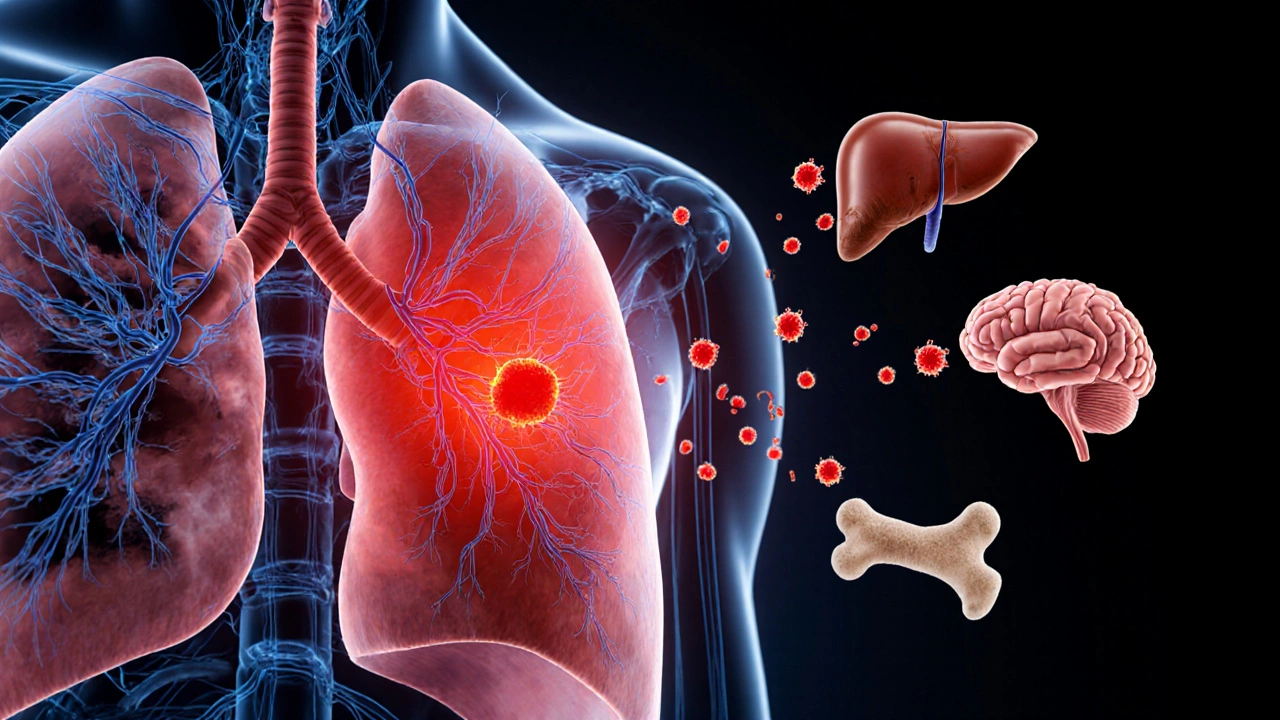Stage 4 Cancer Cure: What It Really Means
When talking about Stage 4 Cancer Cure, the goal of completely eradicating metastatic disease using all available medical strategies. Also known as advanced cancer remission, it involves aggressive cancer treatment, targeted therapies, and sometimes surgical removal of isolated lesions. Understanding this concept sets the stage for realistic expectations and informed decisions.
People often wonder if a cure is possible at this stage. While true eradication is rare, modern stage 4 cancer cure efforts focus on extending life, shrinking tumors, and achieving long‑term remission. Treatments like immunotherapy, precision oncology, and high‑dose radiation have shifted survival curves upward. At the same time, palliative care provides symptom relief, emotional support, and quality‑of‑life enhancements plays a critical role, ensuring patients stay as active and comfortable as possible while therapies take effect.
Key Factors Shaping the Search for a Cure
Three major forces drive outcomes for stage 4 patients. First, the biology of the tumor—genetic mutations, hormone receptors, and micro‑environment—determines which drugs will work. Second, the patient’s overall health, including organ function and immune strength, influences how aggressively doctors can treat. Third, access to cutting‑edge clinical trials opens doors to experimental agents that might tip the balance toward a cure. When these elements align, remission rates climb, and some patients move from a terminal outlook to a hopeful long‑term survivorship plan.
Remission, often confused with a cure, means no detectable cancer after treatment. Studies from major Indian oncology centers show that roughly 10‑15% of stage 4 patients achieve durable remission with combined modality therapy. This doesn’t guarantee that cancer won’t return, but it does offer a tangible benchmark for success. Monitoring through regular imaging, blood markers, and patient‑reported outcomes helps catch any recurrence early, where it can be tackled again with a fresh therapeutic approach.
Beyond drugs, lifestyle adjustments can support treatment goals. Nutrition plans tailored to maintain weight and muscle mass, moderate exercise to boost circulation, and stress‑reduction techniques all feed into a stronger immune response. For many, integrating Ayurveda‑informed foods—like turmeric‑rich dishes—adds an extra layer of anti‑inflammatory support, though these should never replace prescribed medicines.
Finally, the emotional landscape matters. Counseling, support groups, and family involvement improve adherence to treatment schedules and reduce depression, which can otherwise blunt the body’s response to therapy. In short, curing stage 4 cancer isn’t a solo battle of pills; it’s a coordinated effort across medical, physical, and mental domains.
Below you’ll find a curated selection of articles that dig deeper into each of these topics—everything from breakthrough immunotherapy trials to practical tips for managing side effects. Whether you’re a patient, caregiver, or simply curious, the posts ahead break down the complex world of stage 4 cancer cure into clear, actionable insight.




